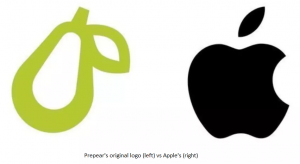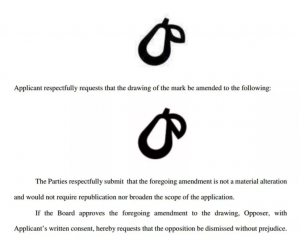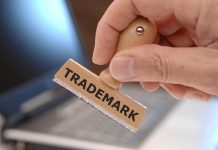This article is written by Ishita Manot Shekhawat pursuing Certificate Course in Advanced Civil Litigation from LawSikho.
Table of Contents
Introduction
After literally owning the logo of a bitten Apple for decades, it seems that now Apple Inc. needs all the fruits in the world. Apple Inc., a worldwide technological firm, has been a participant in numerous legal processes and claims from its inception and, like its rivals and peers, participates in litigation in its usual course of business for a number of reasons. Apple, in particular, is recognised for vigorously and aggressively defending its intellectual property interests, which it promotes. Apple has been a plaintiff or defendant in legal lawsuits in the United States and other nations since the 1980s. Some of these activities have resulted in major case law for the information technology sector, while others have piqued the public’s and media’s interest.
Apple was recently found to be involved in yet another dispute with a small company. Apple Inc. filed a lawsuit against a firm over the use of its logo last year in August 2020. Prepear is a cooking application, available on both Android and macOS. The firm, whose name is based on its logo and is registered as Prepear, assists its customers in preparing meals and creating shopping lists. Prepear’s parent organisation, Super Healthy Kids Inc., filed a trademark registration for its modest pear logo in 2017. The engraving was communicated by the US Patent and Trademark Office (USPTO) in 2019 without any disputes. Nonetheless, on the most recent day of filing objections with the USPTO, Apple protested Prepear’s logo, claiming that a reasonable mistake may occur between the two associations’ logos owing to a blurring between the two. Goliath in the field of technology, Apple is limiting the trademark registration of meal prep app Prepear’s logo, claiming that its apple logo design quickly comes to mind on seeing the green pear. This article will reflect on the concept of trademark bullying and how large corporations interfere in the brand building and IPR registration process of small organisations and whether it leads to oppression of such small organisations.
Intellectual property rights
Intellectual property rights are legal rights that give creators protection for original works, inventions, or appearance of the product, artistic works, and scientific developments and so on. Another well-known kind of intellectual property protection is trademarking. A trademark is a distinguishing symbol that helps customers quickly recognise the goods or services that a firm offers. McDonald’s golden arches, the Facebook logo, and so on are some examples. A trademark might be words, a slogan, a symbol, a sound, a fragrance, or a colour scheme.
Big companies have a moral obligation to treat their smaller counterparts fairly, this should be part of their corporate governance. Smaller businesses that are being bullied also need to take a stand for themselves.
What is trademark bullying?
Trademark protection law was created to provide trademark owners with exclusive proprietary rights, a monopoly over their trademarks, and to protect the public’s goodwill. Trademark protection was created to prevent the sale of counterfeit goods under a well-known brand name, but when these owners go above and beyond their legal rights to defend their mark, the phrase for this type of behaviour is known as “trademark bullying.” The United States Patent and Trademark Office (USPTO) has defined trademark bullying as “the act where the trademark owner that uses its trademark rights to harass and intimidate another business beyond what the law might be reasonably interpreted to allow.”
For example, when a powerful firm or a large multinational corporation (MNC) such as Amazon or Apple, which has vast financial resources, brings a lawsuit against a local or smaller company for violation, legal proceedings have a hefty price tag attached to them that not everyone can afford. A small business that lacks the financial resources to pursue a legal battle is prone to succumbing to the pressures of these large corporations and foregoing the use of their trademark, as well as the products and services associated with it, to which they are legally entitled. These threats, on the other hand, are frequently baseless. It is understandable, however, that a company that has built its brand’s reputation and goodwill through extensive marketing, advertising, and the provision of exceptional goods and services would go to great lengths to protect its brand from being exploited by a third party with the malicious intent of profiting from the name of a well-known brand.
Large corporations oppressing smaller businesses
Year after year, international conglomerates confront more competition as entrepreneurs bring their modern sensibilities to the table. Significant developments in customer views, which favour smaller businesses with more personality, are enhancing their sheer creative strength. Younger businesses are beginning to devote greater resources to intellectual property protection. Colossal companies retaliate by employing extreme legal procedures. Some entities, taking advantage of the law’s neutrality, conduct legal attacks against smaller businesses under the pretext of enforcing their rights. Monster Energy, the energy drink manufacturer, has earned a reputation as a trademark bully due to its aggressive approach to come after small businesses using the term “Monster” in their brand names. McDonald’s, the internationally renowned fast-food company, has gone after businesses that use the terms “Mc” or “Mac” in their names, even though their enterprises are not related to the fast-food industry.
Big companies have a moral obligation to treat their smaller counterparts fairly, this should be part of their corporate governance. Smaller businesses that are being bullied also need to take a stand for themselves.
Apple vs Prepear: Smart strategy or trademark bullying
While there are fewer incidents of trademark bullying in India, the number of cases in the United States is far larger. In Apple vs. Prepear, Apple argued that the minimalistic style of Prepear’s logo is likely to cause customer confusion owing to the “blurring” between the two brands. Apple says that the logo would “cause dilution of uniqueness,” making it difficult for buyers to distinguish between Apple and Prepear’s goods – a breach of the Lanham Act, according to Apple.
In its notice of objection, the internet behemoth outlined its worries by stating, “Applicant’s Mark consists of a minimalistic fruit design with a right-angled leaf, which readily calls to mind Apple’s famous Apple Logo and creates a similar commercial impression. The Apple Marks are so famous and instantly recognizable that the similarities in applicant’s mark will overshadow any differences and cause the ordinary consumer to believe the applicant is related to, affiliated with or endorsed by Apple.” In response, Russell Monson, a co-founder of Prepear, circulated a petition titled “Save the Pear from Apple!” which gathered over 2,50,000 signatures. Monson emphasized that Prepear is a small firm with only five employees and that the company could not afford a legal battle with Apple; he also claimed that working with Apple has been “terrifying” so far. Apple’s court brief, on the other hand, states that Prepear’s nutrition and the healthcare-focused app might be misconstrued as “Apple’s natural zone of expansion,” giving Apple some justification for opposing Prepear’s trademark registration application.
However, if one comes across the Prepear logo, it is easy to distinguish it from Apple’s logo. While both designs are simple and two-dimensional, Prepear’s logo is of a pear with a leaf pointing downwards highlighted with a strong green border and a vacant white space in the centre. Apple’s logo, on the other hand, is a half-bitten apple that is devoid of any other colour other than black.
Additionally, the businesses of Prepear and Apple are far from being identical, and nor do they create similar items, with the former being a recipe app and the latter engaging in the production, distribution, and sale of electronic goods.
This isn’t the first time Apple has fought a trademark it doesn’t intend to use. It has previously been embroiled in legal fights with firms whose names or logos include the word “Apple.” In the past, several small companies have had to face legal disputes with Apple over the use of actual fruit or anything that even has the remotest resemblance to its logo.
According to documents filed with the Trademark Trial and Appeals Board of the United States Patent and Trademark Office, proceedings involving Apple and Prepear had been postponed for 30 days while both parties attempted to resolve the dispute outside of court. The procedures were to resume on January 23, 2021, unless a resolution is achieved before then. The dispute finally concluded, with meal-planning software Prepear agreeing to change its logo slightly to avoid “dilution of the uniqueness” of Apple’s. Prepear, according to documents filed with the United States Patent and Trademark Office (USPTO), has altered the leaf on top of the pear, giving it a new, straight edge. Prepear’s CEO said that the trademark issue had been “amicably” solved and that they were happy with the outcome.
Trademark bullying in India
Trademark bullying lawsuits have started taking their toll in India. The trademark law in India has granted a bunch of varied rights to the patent holders which also includes commencing a legal process against anybody who attempts to breach the trademark of the holder but the same must be genuine and legitimate.
Thus, a provision under Section 142 of the Trademark Act, 1999 is present to protect smaller firms in India against frivolous infringement lawsuits brought by larger businesses and to defend their rights. The provision states:
“Where a person, by means of circulars, advertisements or otherwise, threatens a person with an action or proceeding for infringement of a trademark which is registered, or alleged by the first-mentioned person to be registered, or with some other like proceeding, a person aggrieved may, whether the person making the threats is or is not the registered proprietor or the registered user of the trademark, bring a suit against the first-mentioned person and may obtain a declaration to the effect that the threats are unjustifiable, and an injunction against the continuance of the threats and may recover such damages (if any) as he has sustained, unless the first-mentioned person satisfies the court that the trademark is registered and that the acts in respect of which the proceedings were threatened, constitute, or, if done, would constitute, an infringement of the trademark.”
Provisions for this are also included in the Copyright Act, 1957, Patent Act, 1970, and Designs Act, 2000.
Cases in India relating to trademark bullying
Trademark bullying has been prevalent in India as well. Let us understand how the issue has been dealt with in the Indian scenario with the help of some case laws:
-
Bata India Limited vs. Vitaflex Mauch Gmbh
In this case, Vitaflex served Bata with a court notice alleging trademark infringement on its five pressure point shoe design. The plaintiffs filed a trademark bullying complaint against the defendants, requesting that the defendant refrains from bringing legal procedures pertaining to the disputed trademark. The threats, according to the plaintiffs, were unfounded and unreasonable. They wanted a declaration to that effect.
The main issue before the Delhi High Court was whether the legal notice amounted to a threat of legal action or harassment and whether the plaintiff was entitled to damages and an injunction as a result.
The court ruled in favour of the plaintiff, stating that the defendant’s threats were baseless, unreasonable, and unjust. As a result, the defendant was instructed to refrain from making any such baseless threats in any way.
-
Cadbury vs. ITC Ltd
In this case, Cadbury brought a complaint against ITC when it began marketing Eclairs with its ‘Candyman’ trademark, and the plaintiff obtained an injunction. Finally, ITC filed a motion with the Intellectual Property Appellate Board, claiming that the trademark had not been used since 1994.
“Section 47 of the Trademark Act, 1999 states removal of the trademark by IPAB on the grounds of non-use, trademark registered without any bona fide intentions, or if there has been no proof of use for a period of five continuous years from the date of application for registration of the trademark.”
Cadbury said in its defence that their trademark “Chocolate Eclairs” was registered in India in 1974 and has been in use since then. It also owns the trademark for ‘Chocolate Eclairs Pop’. However, they failed to provide any proof in this regard.
According to the verdict, there wasn’t “a single piece of evidence” to establish it, and simply registering would not assist the respondents in demonstrating their use. It was further added, “The board in various matters on the issue of non-user has held that if the respondent does not appear to rebut the ground of non-user, it goes without saying that they have not used the mark even after several years of registration and the mark shall be cancelled for non-user.”
As a result, Cadbury chose not to pursue the case further because the trademark had not been used in years. It is also worth noting that non-use of the mark is a key cause why firms lose their trademarks.
-
Jones Investment Co. Inc vs. Vishnupriya Hosiery Mills
In this dispute, Jones Investment Co Inc, a US-based large apparel company, brought an action against Vishnupriya Hosiery Mills of Chennai, which was using the trademark ‘Jones’ for its goods.
The plaintiff argued that this local brand (defendant) was causing consumer confusion because the company was the sole registered owner of that trademark ‘Jones New York,’ which was used across the globe including a variety of products, and these goods had acquired a reputation and brand image.
In response, the defendant said that it had been using its trademark since 1993, long before the plaintiff company, and that there could be no misunderstanding among customers because Jones Investment’s goods are not marketed in India.
The Intellectual Property Appellate Board ruled in favour of the defendant, allowing the local brand to keep its trademark. It said that multinational corporations who have no intention of selling their goods in India cannot block an Indian firm that has legitimately adopted the mark and is the first in the market from utilising it.
-
Milmet Oftho Industries & Ors vs. Allergan Inc
The court ruled in this case, that the simple fact that the Respondents have not been utilising the mark in India would be immaterial if they were first in the global market. The appellants, in this case, were an Indian pharmaceutical firm. The firm was involved in the selling of the medication ‘Ocuflox.’ The respondents were a multinational pharmaceutical firm that sold a medication with the same name as the appellants. As a result, when evaluating trademark infringement, the operative test is who was first in the market.
Preventive measures against trademark bullying
Trademark bullying makes it difficult for small businesses to join the market. As a result, many small businesses are deterred from introducing new products, expanding into new markets, or using a certain trademark for fear of facing legal repercussions from bigger corporations. Smaller businesses could take some precautions to defend themselves against bogus trademark bullying threats.
- Before filing for trademark registration, firms must first undertake extensive due diligence on comparable marks. By doing so, such future lawsuits can be averted.
- Trademark owners must stay up to date on current and applicable trademark laws. Companies will be able to discern between valid and unjustified claims as a result of this.
- Companies must also explore using Alternative Dispute Resolution systems to resolve conflicts. This may aid in lowering the expense of defending a lawsuit.
- Finally, when a trademark infringement notice is sent to a company, it should undertake a proper investigation before agreeing to the terms of a settlement. Furthermore, Section 106 of the Patents Act, 1970 allows for an aggrieved party who has received correspondence stating the initiation of legal proceedings to sue the said party for the following reliefs: a declaration that the threats are unjustifiable, an injunction restricting the party from issuing any further threats, and damages which have been endured.
Conclusion
Trademark bullying is a chronic and widespread issue that is affecting major companies. In the instance of Apple and Prepear, Apple’s excessive action threatens to derail the young recipe app’s honest and careful efforts. There is a fine line between trademark bullying and fair protection of one’s intellectual property rights. However, one cannot entirely blame Apple, as a business grows larger and becomes better known in the international market, it becomes increasingly vital for such big companies to safeguard their intellectual property rights, lest another entity profit from their reputation and brand name. There is no iota of doubt that a company as big as Apple should protect itself from infringers, however, with the present opposition, namely, Prepear, it seems that Apple has gone way too far. Being an internationally renowned brand does not give them the right to claim a monopoly over all fruit-related logos.
To summarise, all infringement complaints are neither threat nor trademark bullying. It is critical for the individual bringing the legal action to ensure that it is within the limits of his rights and legitimate claims. Smaller firms bear the burden of such aggressive activities; thus, trademark bullying must be correctly recognised by the courts so that the innocent does not suffer as a result of unfounded allegations of infringement.
References
- https://www.inquartik.com/blog/basic-intellectual-property-rights/
- https://www.latestlaws.com/articles/apple-v-prepear-trademark-bullying-or-enforcement-of-ip-rights/
- https://timesofindia.indiatimes.com/gadgets-news/apple-has-a-problem-with-fruit-logos/articleshow/77456343.cms#:~:text=Apple%20is%20
- https://www.change.org/p/apple-save-the-pear-from-apple-end-apple-s-aggressive-opposition-of-small-businesses-with-fruit-logos
- https://www.macrumors.com/2021/02/09/prepear-settles-apple-trademark-dispute/
- https://abounaja.com/blogs/misuse-of-intellectual-property
- https://hypebeast.com/2020/8/apple-prepear-logo-trademark-dispute-info
Students of Lawsikho courses regularly produce writing assignments and work on practical exercises as a part of their coursework and develop themselves in real-life practical skills.
LawSikho has created a telegram group for exchanging legal knowledge, referrals, and various opportunities. You can click on this link and join:
 Serato DJ Crack 2025Serato DJ PRO Crack
Serato DJ Crack 2025Serato DJ PRO Crack













 Allow notifications
Allow notifications


